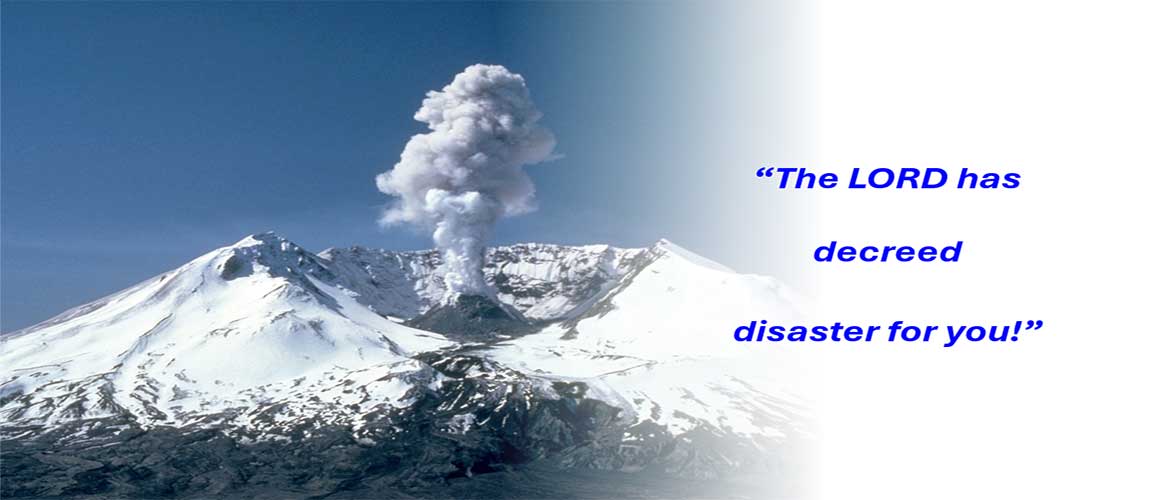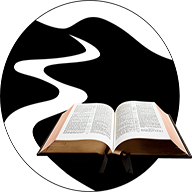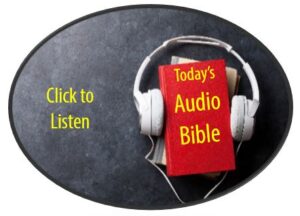
Hello my ‘Walking with Jesus’ friends,
Yesterday we considered the words “Peer Pressure” and today I’d like to take that one step further as we consider “Intimidation”. Like “peer pressure”, “intimidation” is seen on playgrounds, in offices, on the job site, in hospitals, in airplanes, in courtrooms, in governments and even in homes and sometimes churches.
I left you yesterday in a royal audience with Kings Jehoshaphat and Ahab, the kings of Israel’s northern & southern kingdoms in the year 854bc. The little known prophet of God named Micaiah was standing before the kings and their other advisors all of whom were awaiting Micaiah’s answer to a simple but very significant question King Ahab had asked: “Micaiah, shall we go to war against Ramoth Gilead or not?” (2 Chronicles 18:14)
The question of ordering military action is debated in the presence of Presidents and Kings everyday around our world. All world leaders have trusted advisors whom they engage in those debates. In this case, as I showed you yesterday, there was no reason King Jehoshaphat should even consider allying with wicked King Ahab in anything, much less military action. However Jehoshaphat had allied himself with Ahab through marriage and Jehoshaphat was feeling some pressure, but nothing like the pressure the prophet Micaiah was under. Let’s rejoin the scene in Samaria.
Finally Micaiah took a deep breath and responded: “Attack and be victorious, for they will be given into your hand.” The words on the page don’t give us voice inflection or body language or the look on Micaiah’s face, but it’s clear King Ahab did not believe Micaiah had spoken what he really had to say, so Ahab pressed him. “How many times must I make you swear to tell me nothing but the truth in the name of the LORD God of Israel?” (2 Chron. 18:15) Peer pressure was moving to the level of intimidation. But one of the criteria for being a ‘man of God’, a prophet of God, was having a much greater fear of God than of man, and a willingness to accept any punishment from man in order to deliver the message of God. Do you remember these words of wisdom from Solomon: “The fear of the LORD is the beginning of wisdom…” (Proverbs 1:7 & Ps. 111:10) Look at the prophet Micaiah. Can you see his eyes darting around from face to face, none of whom sought to honor the God of Israel with their lives? None, that is, except one man, King Jehoshaphat of Jerusalem. “Then Micaiah answered, “I saw all Israel scattered on the hills like sheep without a shepherd and the LORD said, ‘These people have no master…” (2 Chron.18:16) Micaiah paused! Everyone who heard Micaiah’s words knew what he meant. The people of Israel scattered without a shepherd could only be a picture predicting the death of King Ahab in battle!

Now friends, let’s add one more level of ‘peer pressure’ and ‘intimidation’ to this scene. 1 Kings 22 tells us this was not happening in the quiet throne room of Ahab’s palace in Samaria. Prideful Ahab had his servants set up two thrones at the main gate entrance to his city Samaria, the capital city of the northern kingdom Israel. This is where city leaders normally sat each day doing the business of the city, but on this day, the raised rock platform was hosting two thrones and two kings, surrounded by dozens, maybe scores of royal officials and the advising prophets. Naturally a large crowd had gathered for this was quite a scene to behold with both the Kings of Israel and Judah sitting on royal thrones side by side at the gate of Samaria. (1 Kings 22:10) So we can assume the prophet Micaiah has hundreds of people staring at him, some of them ready to kill him for daring to speak the words he has just spoken!
King Ahab turned to King Jehoshaphat and said “Didn’t I tell you he never prophesies anything good about me, but only bad?” A rumble was running through the crowd, everyone could feel the tension rising. All eyes were darting between King Ahab and the lonely prophet Micaiah. Stares turned to glares and fists started to clench. Micaiah pressed on, explaining that he had seen a vision of the throne room of God and God seeking an angel from heaven who would entice King Ahab to attack Ramoth Gilead and be killed in the battle! Then Micaiah concluded his explanation of his vision of heaven with this statement, perhaps raising his voice and pointing his finger for emphasis: “So now the LORD has put a deceiving spirit in the mouths of these prophets of yours. The LORD has decreed disaster for you!” (2 Chron. 18:18-22)
The tension was unbearable and one of Ahab’s false prophet advisors jumped forward toward Micaiah and slapped him in the face. Pause just a moment friends. Does this scene in 854bc seem very similar to the trial of Jesus on the night He was betrayed by Judas; as He stood before the High Priest and other powerful, religious leaders in Jerusalem, and seeking to intimidate Jesus they accused Him of blasphemy and slapped Him in the face? (Matt. 26:67)
Ahab had heard enough and ordered that the prophet Micaiah be bound and removed from his presence. Ahab pronounced his sentence: “Take Micaiah back to Amon the ruler of the city… and say: ‘This is what the king says: Put this fellow in prison and give him nothing but bread and water until I return safely.”
As the king’s guards roughly bound Micaiah and started ushering him away from the king, Micaiah had one last word for King Ahab: “If you ever return safely, the LORD God has not spoken through me.” And then raising his voice and shouting to all the people who had witnessed this scene, the prophet Micaiah shouted these last words: “Mark my words, all you people!” (2 Chron. 18:25-27) And with that, the man of God Micaiah was dragged away from the kings, slung over the back of a mule and led away to prison.

Neither 1 Kings 22 nor 2 Chronicles 18 give us any more details on what was said that day at the gate to Samaria between Kings Ahab and Jehoshaphat. The visible impact of these two men and what had taken place was so powerful, I presume they both sat there in full view of hundreds of people, for some time, enjoying the spectacle but also discussing quietly and privately what the implications of this event might be. The question remained unanswered: Should they join forces in attacking and seeking to regain the distant town of Ramoth Gilead or should they consider very wisely the vision of heaven which Micaiah had reported to them?
All around them were the prophets of King Ahab urging them to attack. Micaiah was only a memory as he had been hauled away, bound, headed for prison. Both Kings faced a major defining moment and they were not about to make this decision quickly. So let’s pause here and contemplate what we have seen and heard today! King Ahab was a wicked man who had spent his life mocking God and seeking to remove God from Israel, replacing him with the idol worship of Baal and Asherah. Despite the great showdown with Elijah the prophet at Mt Carmel, Ahab’s heart was hard and unrepentant. (1 Kings 18) Jehoshaphat had spent his life trying to honor God and always seeking God’s guidance before decisions and actions. They could not be more different and they stood at the crossroads of decision. They knew that if they chose to join forces in battle, men would die, maybe many men.
What are the implications and potential consequences of the decisions you and I are facing these days my friends? Are we being pressured into relationships or decisions which are unwise for us and detrimental to our relationship with God? Here’s a worship song to help us ponder these things. What if someone had started singing this song that day at the gate of Samaria?
Bible images provided with attribution to www.LumoProject.com.
Have a comment or question about today’s chapter? I’m ready to hear from you, contact me here.

Pastor Doug Anderson
“Let us run with perseverance the race marked out for us, with our eyes fixed on Jesus…” (Heb. 12:1,2)
Archived back issues of “Walking with Jesus” and other resources are available by clicking here to open our ‘home page’ (or go to HOME at upper right of this page).
Share with friends. Subscribe below for daily “Walking with Jesus”.


